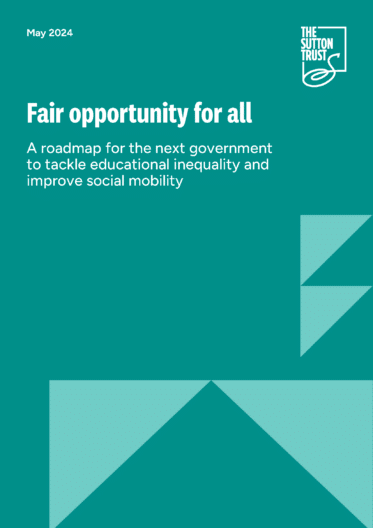In Britain, the opportunity to succeed is still heavily shaped by your socio-economic background – the social and economic circumstances that you grew up in.
As the 2024 General Election fast approaches, the Sutton Trust’s Fair Opportunity for all is a roadmap for the next government, exploring how they can break the link between background and success – and make the most of the country’s talent.
Change is needed now more than ever. In the aftermath of the pandemic, the ongoing cost-of-living crisis and a long period of near stagnant economic growth – ensuring everyone has a fair chance to succeed, regardless of their background, has only become even more urgent.
Fair Opportunity for All makes the case for why the next government must put opportunities for the next generation at the centre of its agenda, and outlines a set of evidenced backed and costed recommendations that can equip the government to improve social mobility and widen opportunity – looking at the early years, through to schools, apprenticeships, higher education and into the workplace.
